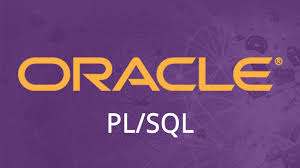
PL/SQL
Basic SQL: Start by learning the basics of SQL, including queries, data manipulation, and data definition. Basic Programming Concepts: Understand basic programming concepts such as variables, data types, and control structures.
PL/SQL Course Content
Module 1: Introduction to PL/SQL
Skills: Understanding of SQL, basic programming concepts
Topics:
What is PL/SQL?
Why use PL/SQL?
PL/SQL architecture and components
Module 2: PL/SQL Basics
Skills: Writing simple PL/SQL blocks
Topics:
PL/SQL block structure
Variables and data types
Constants and literals
Conditional statements (IF-THEN-ELSE)
Module 3: PL/SQL Control Structures
Skills: Using loops and conditional statements in PL/SQL
Topics:
FOR loops
WHILE loops
Nested loops
CASE statements
Module 4: Exception Handling
Skills: Handling errors and exceptions in PL/SQL
Topics:
Types of exceptions
Exception handling with TRY-CATCH
RAISE_APPLICATION_ERROR function
Module 5: Cursors
Skills: Using cursors to process result sets in PL/SQL
Topics:
Implicit and explicit cursors
Cursor attributes (e.g., %NOTFOUND, %FOUND)
Cursor FOR loops
Module 6: Procedures and Functions
Skills: Creating and using PL/SQL procedures and functions
Topics:
Creating procedures and functions
Passing parameters
Overloading procedures and functions
Calling procedures and functions
Module 7: Packages
Skills: Understanding and using PL/SQL packages
Topics:
Creating packages
Package specification and body
Using packages in PL/SQL programs
Module 8: Triggers
Skills: Creating and managing triggers in PL/SQL
Topics:
Types of triggers (BEFORE, AFTER, INSTEAD OF)
Trigger syntax
Trigger examples
Module 9: Dynamic SQL
Skills: Using dynamic SQL in PL/SQL programs
Topics:
EXECUTE IMMEDIATE statement
Using dynamic SQL with cursors
Dynamic SQL limitations and best practices
Module 10: Advanced PL/SQL Concepts
Skills: Understanding advanced PL/SQL features
Topics:
Bulk processing with BULK COLLECT and FORALL
Using collections (e.g., arrays, nested tables)
Using Oracle-supplied packages
Module 11: Performance Tuning
Skills: Optimizing PL/SQL code for performance
Topics:
Identifying performance bottlenecks
Using SQL tuning techniques
Profiling and debugging PL/SQL code
PL/SQL Learning Roadmap
Basic SQL: Start by learning the basics of SQL, including queries, data manipulation, and data definition.
Basic Programming Concepts: Understand basic programming concepts such as variables, data types, and control structures.
PL/SQL Basics: Learn the basic syntax and structure of PL/SQL blocks.
Control Structures: Understand how to use loops and conditional statements in PL/SQL.
Exception Handling: Learn how to handle errors and exceptions in PL/SQL programs.
Cursors: Understand how to use cursors to process result sets in PL/SQL.
Procedures and Functions: Learn how to create and use procedures and functions in PL/SQL.
Packages: Understand the concept of packages and how to create and use them in PL/SQL programs.
Triggers: Learn how to create and manage triggers in PL/SQL.
Dynamic SQL: Understand how to use dynamic SQL in PL/SQL programs.
Advanced Concepts: Dive into advanced PL/SQL concepts such as bulk processing, collections, and Oracle-supplied packages.
Performance Tuning: Learn how to optimize PL/SQL code for performance.
This roadmap and course content will help you build a strong foundation in PL/SQL and prepare you for a career as a PL/SQL developer or database administrator.
Enroll For Course Now